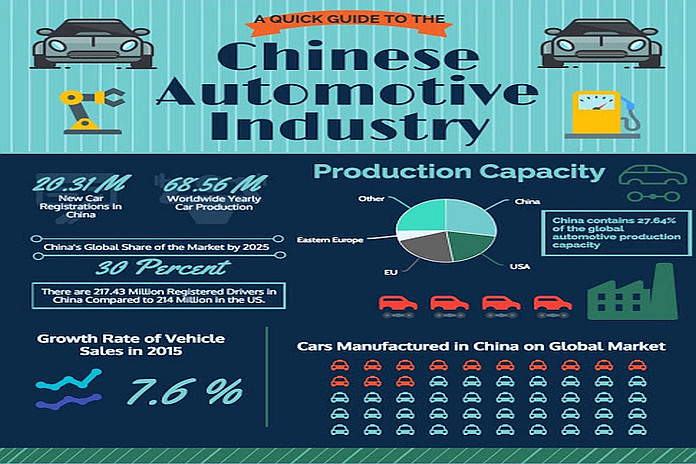Addendum To BYD Case Study: Analyzing Their EV Battery Manufacturing Success

Table of Contents
BYD's Vertical Integration Strategy: A Key to Success
BYD's success isn't accidental; it's strategically engineered through a robust vertical integration model. This means BYD controls nearly every aspect of its EV battery production, from sourcing raw materials to assembling the final battery pack. This approach offers several significant advantages in the cutthroat world of battery manufacturing.
- Control over the supply chain: By managing its own supply chain, BYD significantly reduces its reliance on external suppliers, mitigating risks associated with price fluctuations, shortages, and geopolitical instability. This control extends from securing crucial raw materials like lithium, cobalt, and nickel to the manufacturing of key battery components.
- Cost optimization through in-house manufacturing: Vertical integration allows BYD to optimize costs at every stage of production. By eliminating intermediary markups and streamlining processes, they achieve significant cost efficiency, making their batteries more competitive in the market.
- Improved quality control and faster innovation cycles: Direct control over the entire manufacturing process enables BYD to implement stringent quality control measures and rapidly iterate on designs and improvements. This leads to higher quality batteries and faster innovation cycles, allowing them to stay ahead of the curve in the rapidly evolving EV battery technology.
- Examples of specific materials sourced and processes controlled: BYD actively invests in securing lithium sources and has developed its own proprietary processes for cathode and anode production, further enhancing its control and efficiency.
This sophisticated approach to supply chain management and battery manufacturing is a cornerstone of BYD's competitive advantage.
Blade Battery Technology: Innovation Driving Market Share
BYD's Blade Battery technology represents a significant leap forward in EV battery innovation. Its unique features have disrupted the market and contributed significantly to BYD's market share gains.
- Increased energy density compared to traditional batteries: The Blade Battery boasts a higher energy density than traditional lithium iron phosphate (LFP) batteries, meaning more energy can be packed into the same space. This translates directly to increased range for electric vehicles.
- Improved safety features and thermal stability: The Blade Battery's design inherently improves safety and thermal stability. Its structure is less prone to thermal runaway, a major safety concern in traditional battery designs.
- Space-saving design leading to increased vehicle range: Its unique shape and design maximize space utilization within the vehicle, allowing for increased battery capacity without sacrificing interior space. This leads to longer driving ranges, a crucial selling point for EVs.
- Impact on vehicle design and performance: The Blade Battery's compact design simplifies vehicle design, offering greater flexibility to automakers and potentially improving vehicle performance.
The Blade Battery's innovative approach to battery technology is a key differentiator for BYD in a highly competitive market, driving both sales and brand recognition.
Sustainable Manufacturing Practices in BYD's Battery Production
BYD's commitment to sustainable manufacturing practices is not just a marketing ploy; it's integral to their business model. Their focus on environmentally friendly processes showcases their dedication to reducing their environmental impact.
- Use of renewable energy sources in their factories: BYD utilizes renewable energy sources, such as solar and wind power, to power their battery manufacturing facilities, minimizing reliance on fossil fuels and reducing their carbon footprint.
- Recycling and reuse of battery materials: The company is actively involved in recycling and reusing battery materials, reducing waste and conserving valuable resources. This is a critical aspect of creating a truly sustainable battery production lifecycle.
- Reduction of carbon footprint in the manufacturing process: BYD continuously works to optimize its manufacturing processes to reduce its overall carbon footprint, aiming for a more sustainable future.
- Alignment with global sustainability goals: BYD’s sustainable practices are aligned with global sustainability goals and initiatives, contributing to a broader movement towards greener manufacturing practices in the EV industry.
This dedication to sustainability not only reduces the environmental impact of their operations but also enhances BYD's brand image and appeal to environmentally conscious consumers.
Market Response and Future Outlook for BYD's EV Battery Business
The market's response to BYD's battery technology and manufacturing strategies has been overwhelmingly positive.
- Increased market share and global expansion: BYD has seen a significant increase in its market share in the EV battery sector, driven by the success of its Blade Battery technology and its vertical integration strategy. They are also expanding globally, establishing a strong international presence.
- Partnerships and collaborations with other automotive companies: BYD is forging partnerships and collaborations with other automotive companies, leveraging its battery technology and manufacturing expertise to expand its reach and influence within the industry.
- Future technological advancements and research and development efforts: BYD continues to invest heavily in research and development, pursuing further advancements in battery technology and aiming to maintain its leading position in the market.
- Predictions for future growth and market dominance: Analysts predict continued growth and potentially market dominance for BYD in the coming years, driven by its innovative technology, efficient manufacturing, and commitment to sustainability.
BYD’s market success is a testament to the effectiveness of their integrated approach to EV battery manufacturing.
Conclusion: Key Takeaways and Call to Action
BYD's success in the EV battery market is a result of a multifaceted strategy encompassing vertical integration, groundbreaking Blade Battery technology, sustainable manufacturing practices, and a strong market response. Their approach serves as a model for other players in the industry, demonstrating the power of innovation, efficiency, and sustainability. BYD's achievements highlight the potential for significant growth and market disruption in the EV sector.
Learn more about the success of BYD's EV battery manufacturing and its implications for the future of electric vehicles. [Insert link to relevant resources here]

Featured Posts
-
 Herthas Crisis Boateng And Kruse Offer Contrasting Viewpoints
May 13, 2025
Herthas Crisis Boateng And Kruse Offer Contrasting Viewpoints
May 13, 2025 -
 Blow Your Mind Beyond Belief Incredible Things You Have To See
May 13, 2025
Blow Your Mind Beyond Belief Incredible Things You Have To See
May 13, 2025 -
 The Chinese Automotive Market A Deep Dive Into The Challenges Faced By Bmw And Porsche
May 13, 2025
The Chinese Automotive Market A Deep Dive Into The Challenges Faced By Bmw And Porsche
May 13, 2025 -
 Alex Fine And Pregnant Wife Cassie Ventura At The Mob Land Premiere Photo Gallery
May 13, 2025
Alex Fine And Pregnant Wife Cassie Ventura At The Mob Land Premiere Photo Gallery
May 13, 2025 -
 Eao I Gazprom Plany Po Gazifikatsii Regiona
May 13, 2025
Eao I Gazprom Plany Po Gazifikatsii Regiona
May 13, 2025
